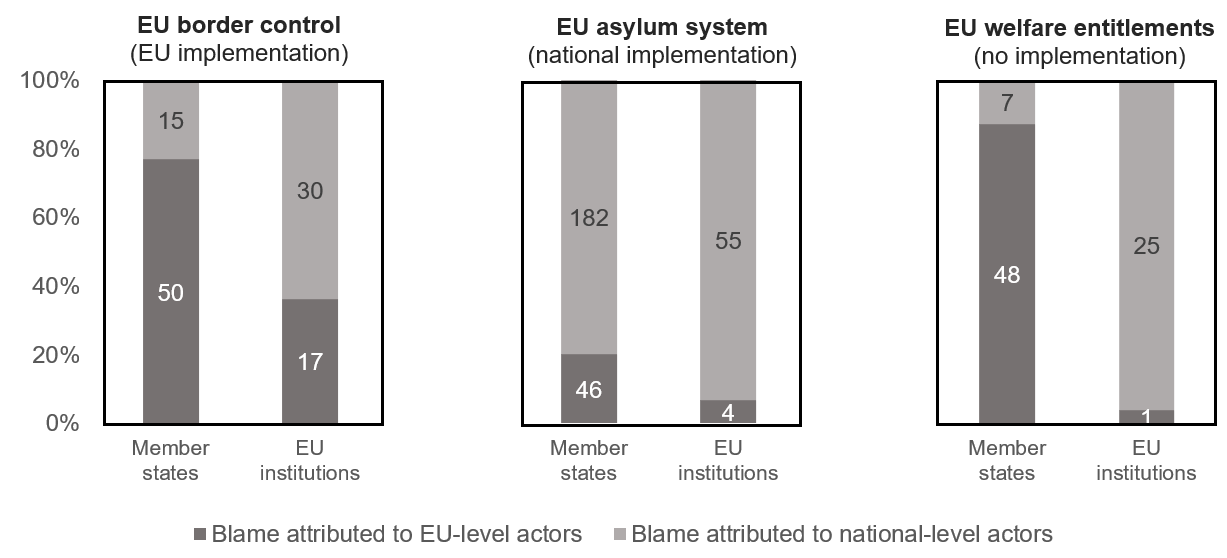Vaccine hesitancy has posed a significant challenge during the Covid-19 pandemic. Elizabeth Storer details how the relational work of communities, as well as policies at supranational and national levels, have influenced orientations toward vaccines across Europe.
Vaccine hesitancy – defined by the WHO as ‘the reluctance or refusal to vaccinate despite the availability of vaccines’ – was labelled one of ten significant threats to Global Health in 2019. This inclusion is interesting, signalling a marked shift to vaccine choices being drawn into a moralised terrain by public health experts. Accepting a vaccine is now increasingly understood as a social choice: an individual duty to protect others.
Prior to Covid-19, there was widespread debate about appropriate frameworks for understanding vaccine hesitancy. Scholars looked for models which could accommodate a range of intersecting factors linked to vaccine resistance – at the individual to the structural level. During the pandemic, complexity was eschewed for simplistic narratives which emphasised individual choice. These frameworks were particularly problematic given the inequalities of mistrust perpetuated through unequal pandemic policies.
Research from the Periscope community, which focuses on the multiple levels of governance that structure community responses to the pandemic, urges for considerations of decision-making that understand behaviour as reproduced through the relational work of communities, as well as policies at supranational and national level. In parallel, published research from the Ethnographies of Disengagement project (part of a consortium of research projects funded through the British Academy’s Covid-19 G7 Recovery Scheme) urges for better theorisation of community-state relations. Both reports seek to restore complexity to policy-frameworks around vaccines.
Governance and vaccines
The findings presented in both reports draw on research with undocumented migrants and people on the move in Italy. The research, which involved participatory and ethnographic methods, was conducted throughout late 2021 and early 2022, when there were concerns that the omicron variant of Covid-19 may bring new lockdowns.
In Europe, many citizens had been vaccinated; in Italy, this figure stood at approximately 80%. Yet, uptake was uneven across the population. The research sought to map (often diverse) orientations towards vaccines and pandemic responses among people who lack citizenship in their country of origin. At the time, supranational WHO and EU policies called for novel approaches to reach disenfranchised migrant communities. Other more stigmatising approaches identified cross-border movement as a potential contributor to the spread of the virus.
Our research found that health interventions were often understood by migrants not solely as matters of public safety, but as bureaucratic instruments of the state, which often further perpetuated exclusion. Such perceptions were heightened in a context where many asylum and regularisation claims had been severely delayed by pandemic closures.
Nationalistic perceptions permeated vaccination campaigns across Europe. In Italy, the first iteration of the campaign required a national insurance number, and as such excluded undocumented persons. It was not until six-months later that migrants could access vaccines with an STP code. Layered with this digital exclusion was pre-existing disenfranchisement between migrants and the health system, since even with an STP code, individuals cannot access a GP, and so often live with chronic conditions. Manifold structural barriers prevented minoritised groups from accessing vaccines.
Overall, our research found conflicts between different levels of government. Supranational policies aimed at inclusion stood in tension with a lack of political will at the national level. In Italy, efforts to vaccinate migrants in Rome, Milan and Turin often relied on proactive volunteer doctors, housing activists and humanitarians. Much of this work was poorly funded.
Migrants faced barriers in accessing vaccines and trusted health information. This reflected politics, stigma and abandonment at multiple levels of governance, as well as historical invisibilisation within the healthcare system. These barriers were hidden by a language of vaccine hesitancy, which presented vaccination as a choice.
Beyond vaccine hesitancy
Our work underlines the power of ethnographic research to highlight patterns of systematic exclusion. Whilst much insightful ethnography has informed scientific advice during the pandemic, there is a risk that the method becomes confined to the local; caricatured as a device merely to translate culture. In debates about vaccine uptake, it was assumed that social science research could inform linguistic and socio-culturally attuned forms of messaging to encourage vaccine uptake. Ethnography was often instrumentalised as an add-on to ‘objective’ science driven by medical sciences, as well as psychological models and behavioural economics.
Yet ethnography too can be a vehicle to inform the delivery of vaccinations. Before Covid-19, powerful anthropological research exploring resistance to Ebola and Polio vaccination elucidated the coloniality and structural asymmetries within global health programmes. Our research during Covid-19 highlighted that the roots of resistance to vaccines often lay far beyond health concerns as medically defined. Instead, histories of state oppression and ongoing processes of political marginalisation contributed to fears of vaccines and health facilities. Grounded research leads to alternative points of departure based on social justice principles of empathetic listening and deliberation.
The struggles of undocumented migrants across Europe were invisibilised during the pandemic. To build real inclusion in the post-Covid world, it is important to re-write narratives which have cast the pandemic as a “great equaliser”. Rather, space must be created to redress the differential harms perpetuated through pandemic policies, including through vaccine campaigns which perpetuated migrant exclusion.
This article is part of a series summarising contributions to a PERISCOPE report on research on best practice in multi-level pandemic governance. The series brings together contributions from four organisations who have conducted interdisciplinary research as part of the EU Horizon 2020 PERISCOPE project: the London School of Economics, the Karolinska Institute, the Federation of European Academies of Medicine, and the Centre for European Policy Studies. For more information about PERISCOPE, please see the project’s website.
Note: This article gives the views of the author, not the position of EUROPP – European Politics and Policy or the London School of Economics. Featured image credit: Braňo on Unsplash



